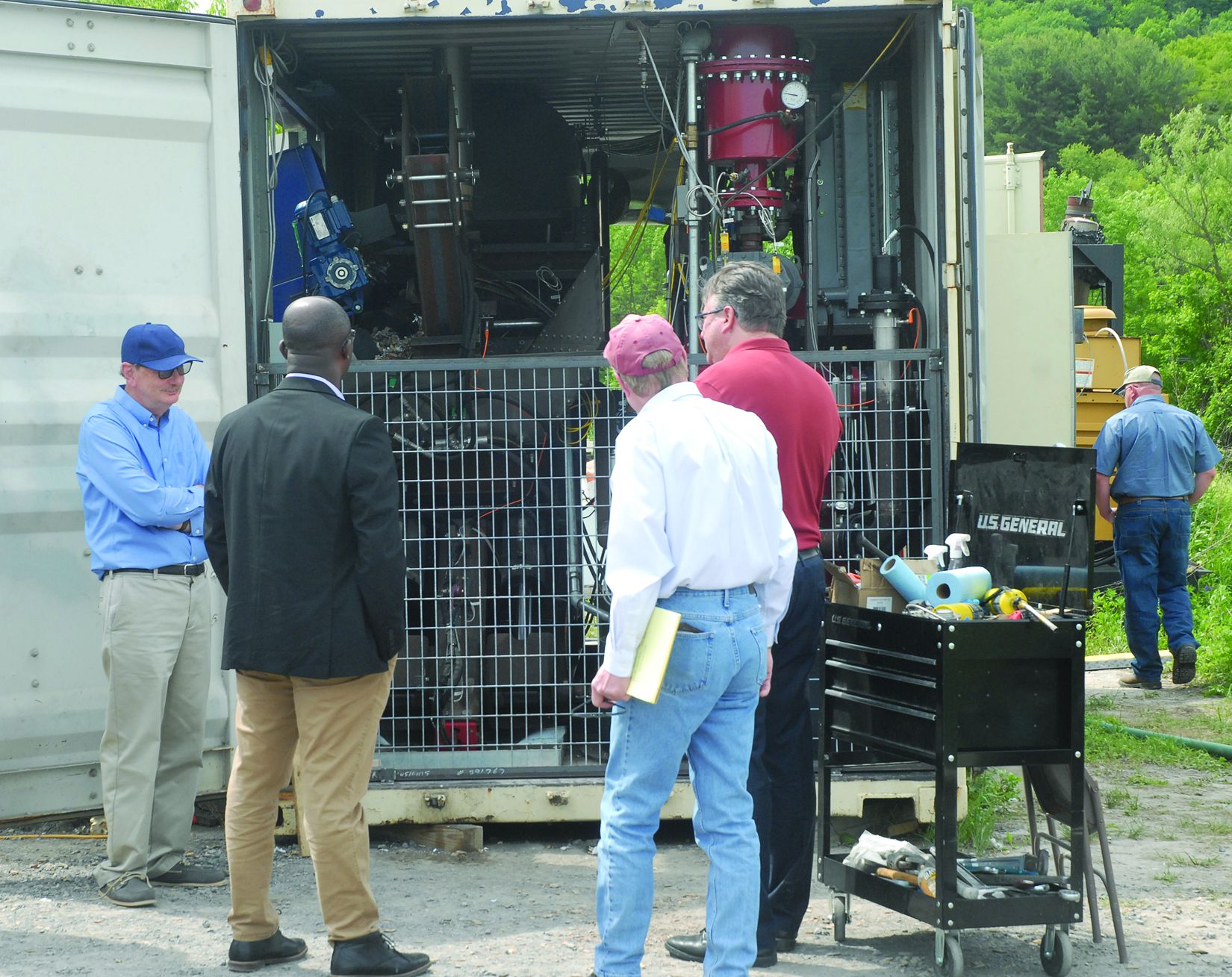Subscriptions
Menu
Advertisements
The future of trash and energy? Supervisors tour gasifer
6/9/2022 |
By Patsy Nicosia |

Supervisors got a look at the gasifier prototype they’re backing for SUNY Cobleskilll and Caribou BioFuels Monday.
And then decided to take the leap, supporting a project half as big again as what they saw to make the project profitable.
Caribou BioFuels filed an application for a $1.5 million Department of energy grant to take the gasifier to the next level—commercial production of units at the old MOSA facility—on Tuesday.
Schoharie County is one of the grant sponsors—though it can still walk away from the deal; negotiations over terms and conditions for things like royalities and payments won’t start until after—if—the grant’s awarded, probably not until at least the fall.
Supervisors got a look at two different gasifier prototypes on their field trip to SUNY Cobleskill.
The first is designed to be transportable, Caribou founder Keiran Mitchell said; it fits inside of two storage containers and the one supervisors saw is headed for West Point—the United States Army has been one of the R&D financial supporters.
The second was a prototype for CalFire, another financial backer, capable of processing three-quarters of a ton of trash—from food waste to wood scraps to sludge—and turning it into a liquid gasoline-like fuel and biochar—an hour.
As a partial solution of the county’s trash problems—where to take it longterm and the growing cost of transporting it (see related story)—that wouldn’t make much of a dent.
It would pay for itself, Mr. Mitchell said, but no more; a larger unit could handle two tons an hour, run 24/7, and turn a profit.
The larger unit would also allow the county to take in sludge from the Village of Cobleskill, saving the village transportation costs and creating another source of revenue, and the additional energy it produced would be sold to Universal Plastics.
With the three-quarter ton gasifier, the county’s share would only be a 20 percent in-kind match for the $1.5 million grant.
The two-ton gasifier would require a $325,000 cash contribution as well as the in-kind.
Mr. Mitchell said Caribou would be willing to “facilitate a loan,” so the county wouldn’t have to pay out of pocket—but again stressed they need to get the grant first, then they can work out the details. They can always say no.
“If you get to the grant, that’s when we really sit down,” he said.
In May, five supervisors voted against backing the grant application, afraid they wouldn’t have anything to show for that $325,000 in the end.
“If we’re going to do this—it’s a big leap—the money isn’t that big,--the leap is,” Blenheim Supervisor and Energy Committee chair Don Airey said after the tour and meeting with Mr. Mitchell, pointing out how closely energy and trash are connected.
Cautioning he didn’t want to throw cold water on their enthusiasm, Casella’s Larry Schilling said he’s seen gasifiers fail because of the difficulty of separating waste.
PVC, for example, is in everything—not just pipe; in gasification, it can emit dioxins into the atmosphere and the process would surely require DEC air quality permits, he said.
“We’ve spent millions pursuing this,” Mr. Schilling said, “and we have one sitting idle in Ontario County because of this. It’s very difficult to separate waste and keep everything clean.
“Gasification isn’t new. Making it work with trash is the challenge.”







